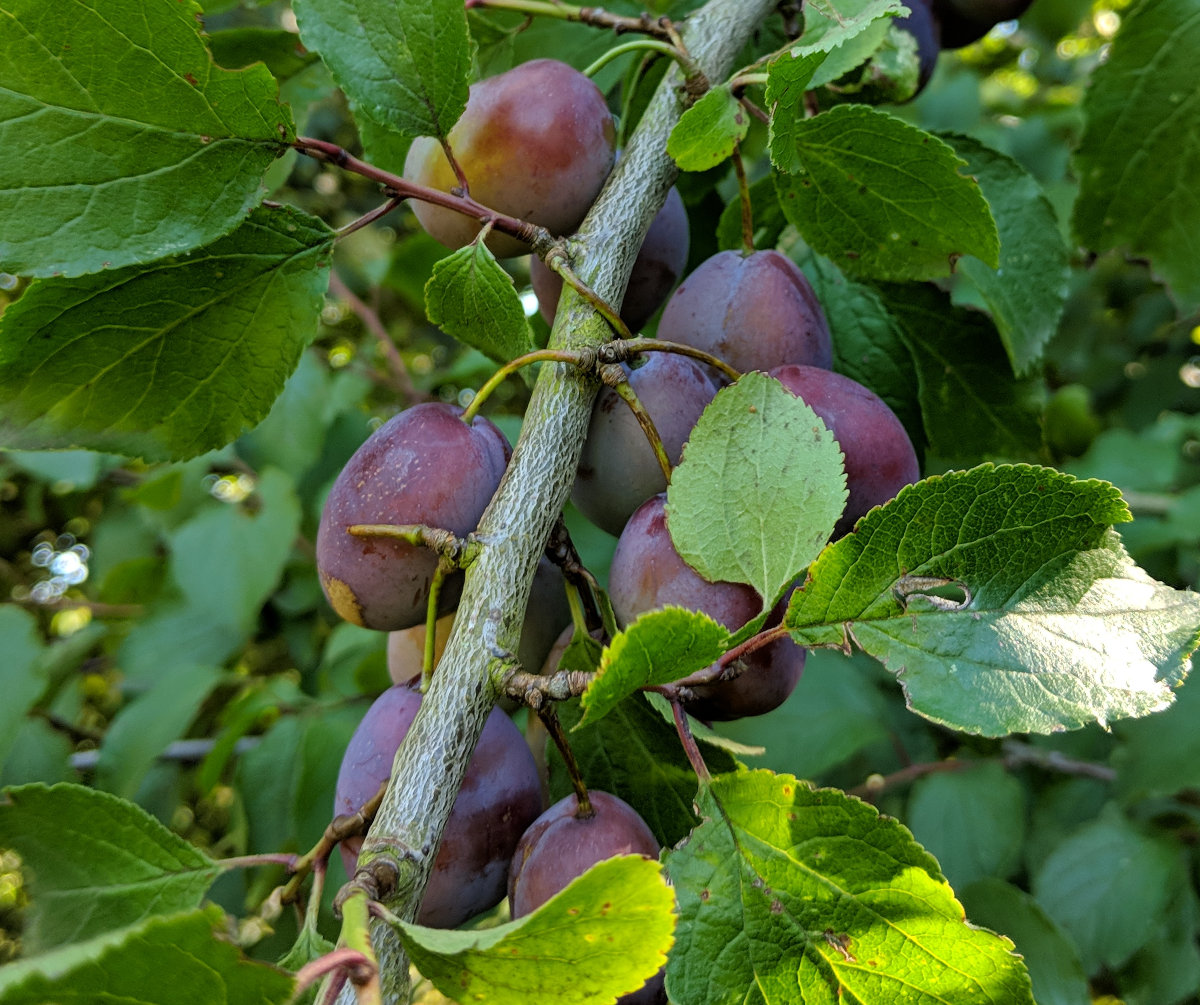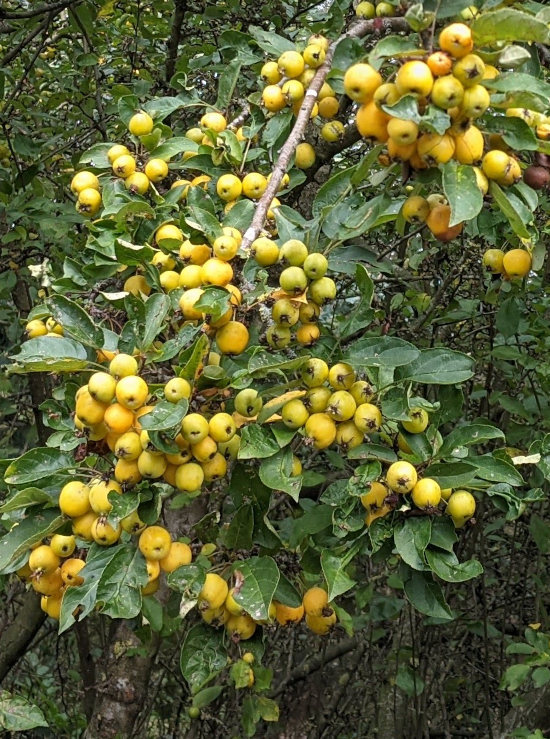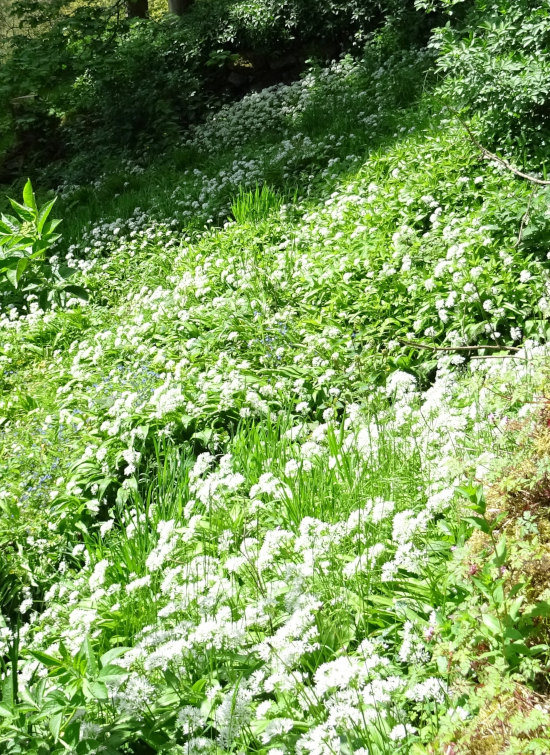Foraging

Foraging, sometimes also known as wild food scavenging, is the act of finding wild fruits, mushrooms, nuts and berries when they are at their seasonal best. Foraging is as old as the human race and it's how all of our ancestors helped feed themselves.
Foraging enables you to find free edible food in the wild that is not readily available in the stores. Using wild vegetables is a great way to add more nutrients and variety to your diet, get fresh air and save money at the same time.
If you wanted to make your own sloe gin for example you will need to go out and pick the fruit of the blackthorn in late November for the best berries.
Below: Crab apples growing wild in farmland. Crab apple jelly is a family favourite.

You can forage to help save money while keeping livestock, there are some berries you can pick and feed to chickens as a way of keeping costs down.
There is a wealth of resources waiting to be tapped just outside our front doors. All you need to remember is the what to pick and when!
What is foraging?
Foraging is the process of hunting down and finding wild foods, fruits, vegetables and in some cases shoreline shellfish that are not normally available in the shops.
Where I live that means I can find wild garlic, apples and pears and plums in the hedges and blackberries in season.
Below: Wild garlic is a spring time favourite in the woods near where I live.

Foraging is different from guerrilla gardening, which is planting crops on other peoples or waste land, with or without their consent.
Is foraging legal?
Foraging for food is legal in most parts of the world with the landowners permission and provided you are not taking or using a plant or animal that is protected by law you should be just fine.
Under law in the UK foraging is supposed to be for personal use and selling what you gather may get you into trouble with the local police under some ancient laws.
Scrumping is the taking of fruit without permission and is illegal.
Responsible foraging rules:
- Tell someone where you are going and don't take risks.
- Safety First! If you don't know what your picking then don't eat it.
- Ask first and never poach animals or scrump fruit.
- Don't trespass and get landowner permission.
- Forage responsibly. Don't break plants or damaged fences. Shut gates and take only what you need.
For the complete list of guidelines, rules and laws around foraging.
What are the benefits of foraging?
There are a couple of benefits to foraging your own food;
- Experience the benefits even if you don't have your own land.
- Fresh in season ingredients.
- You can get free food.
- Find food you might not be able to get in the store.
- Wild food is more likely to be completely organic and more nutrient dense.
- You get out and about in nature which is good for you.
- The food is local with no food miles.
- Is not prepackaged with single use packaging so its good for the environment.
What foods can I forage for?
What foods you can find normally depends on your location but they include:
- Mushrooms.
- Fruit.
- Vegetables.
- Shoreline shellfish.
You might be amazed by what you can find, I stumbled across an old olive tree in the grounds of what used to be a monastery.
How do you start foraging?
Foraging always starts with a location and a knowledgeable person who can help you find and identify the best foods.
Is foraging a learned behaviour?
To some extent you do have to learn to forage but its more a point of learning when the fruit will be ready and a knowledge of your local conditions.
It also helps if you remember where the best foraging locations are from one year to the next.
